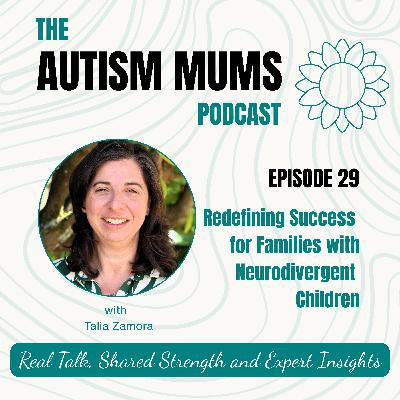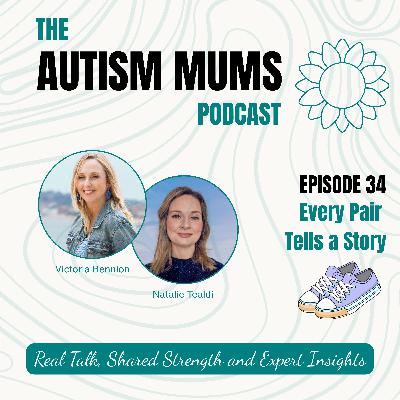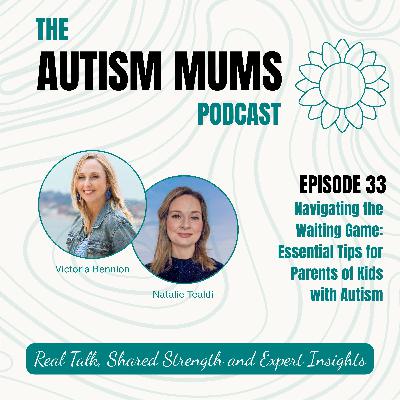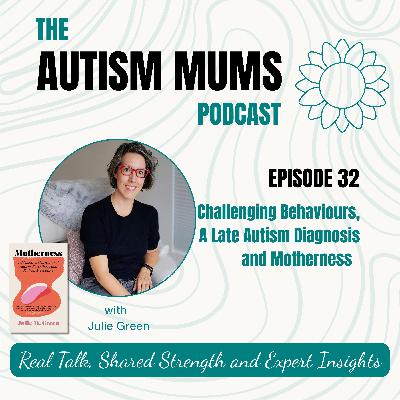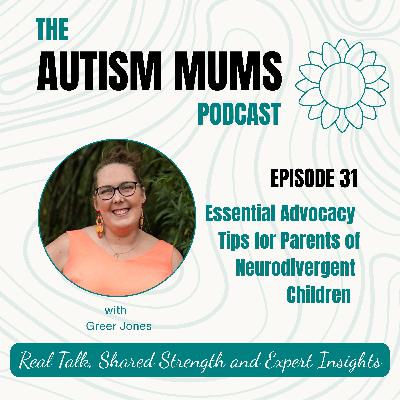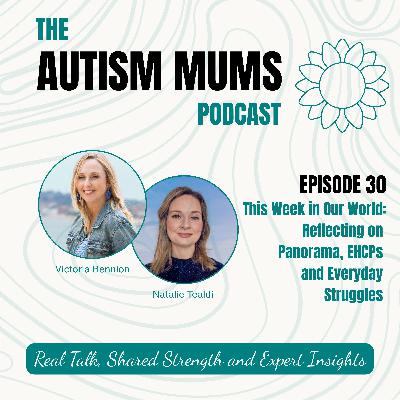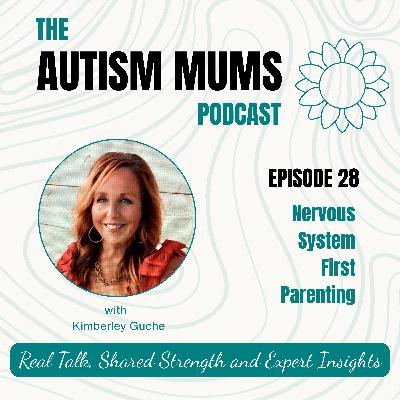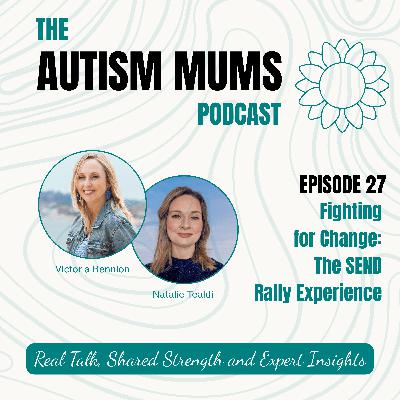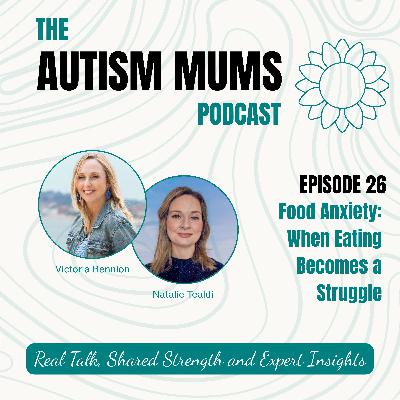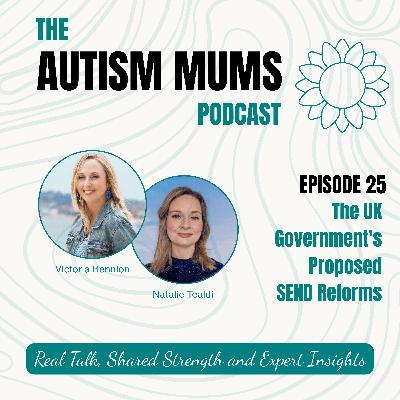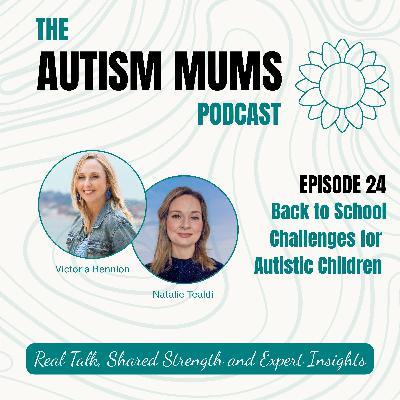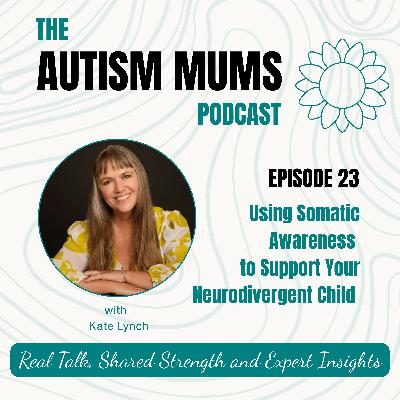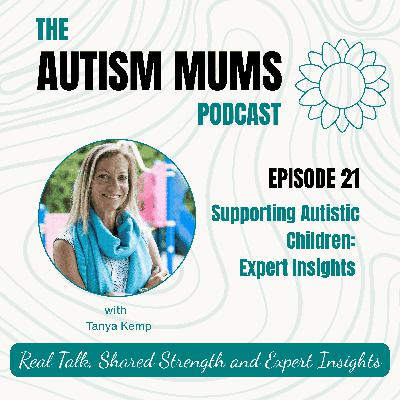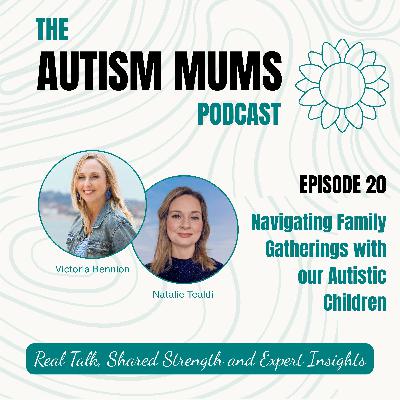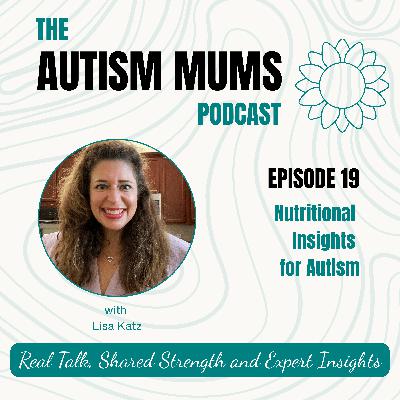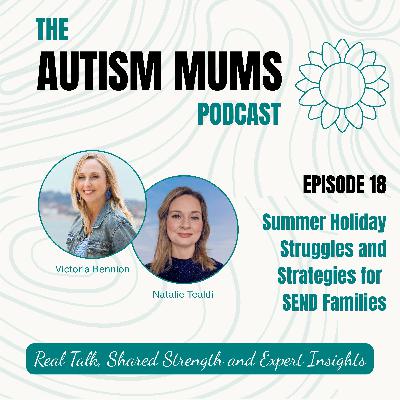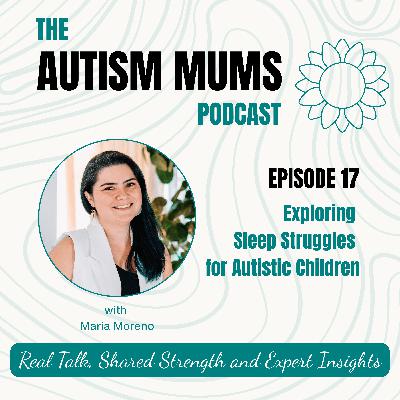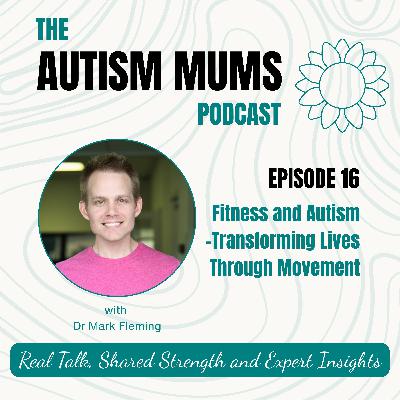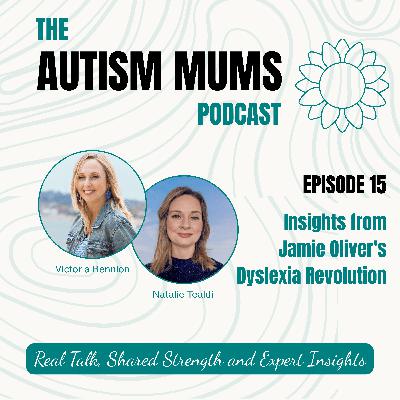Redefining Success for Families with Neurodivergent Children with Talia Zamora
Description
In this week's episode of The Autism Mums Podcast we welcome Talia Zamora to the show.
Biography
Talia Zamora, Award-Winning Coach and bestselling co-author, encourages and uplifts women from Neurodivergent families who are struggling to find balance, clarity, and direction through bespoke one-to-one coaching. With a supportive, accepting, and inclusive approach, she helps clients reconnect with their self-worth, build confidence, and set realistic, meaningful goals that align with their lives. Drawing on both lived experience and professional expertise, Talia’s unique coaching style empowers women to take control, make progress, and redefine success on their own terms. Her work is grounded in simplicity, compassion, and the power of being truly seen and understood.
Key Takeaways
- Accidental Journey to Coaching: Talia’s path to becoming a coach began unexpectedly, driven by her own experiences as a parent of neurodivergent children.
- Identifying Common Struggles: Many neurodivergent families face challenges related to societal expectations and the pressure to conform to typical parenting norms.
- The Importance of Self-Compassion: Talia emphasizes the need for parents to recognize their unique family dynamics and to approach parenting with kindness toward themselves.
- Momentum vs. Balance: Talia discusses the concept of prioritizing momentum over traditional work-life balance, focusing on maintaining progress rather than achieving a perfect equilibrium.
- Breakthrough Moments: Clients often experience significant breakthroughs when they learn to communicate their needs and establish boundaries in both personal and professional contexts.
- Creating a Supportive Environment: Talia highlights the value of creating a nurturing atmosphere at home that accommodates the unique needs of neurodivergent children.
- Practical Tools for Change: The episode offers actionable strategies for parents, including the idea of a "done list" to celebrate achievements and the importance of questioning societal norms in parenting.
Mentioned in This Episode
Talia's 101 Neurodivergent Traits download is available here: https://www.taliazamora.com/
Talia's Wellness Day:
Unmask & Unwind
A Neurodivergent-Friendly Wellness Day on Saturday 19th October 2025 for Women Who Want to Thrive. If you’ve been craving a day to slow down, breathe, and refill your cup this is your invitation.
Find out more here: https://www.taliazamora.com/wellnessday
Connect with Talia
talia@taliazamora.com
https://www.linkedin.com/in/taliazamora/ https://www.facebook.com/TaliaZamoraBusinessandFamilyCoach
Connect with The Autism Mums
Website – https://theautismmums.com/
Follow us on Instagram https://www.instagram.com/theautismmums
Follow us on Facebook https://www.facebook.com/theautismmums
Follow us on TikTok https://www.tiktok.com/@theautismmums
Transcript
[00:00:00 ]
Victoria Bennion: Welcome to the podcast, Talia. It's great to have you here with us today.
Talia Zamora: Thank you very much. It's lovely to be here.
Natalie Tealdi: Can you start by telling us what inspired you to start your coaching journey and how your personal experience helped to shape your approach?
Talia Zamora: My coaching journey, probably happened by accident. What I mean by that is that it wasn't really a lifelong dream to work for myself and, to be a coach. I'd been working in business improvement and. Continuous improvement. Within industry there's something called Lean Six Sigma, and it's about practicing different ways and systems and process to improve your business and make it easier and, manage it well. I came to an end of a contract and I was struggling to find something that would fit around my kids because as you know, your kids have more need for hospital appointments and for you to pick them up from school because they don't necessarily want to, go to the clubs and they get exhausted and burn out and they need to be at home. So I, I really needed something part time and flexible. [00:01:00 ] So at the end of the contract I was on, I just thought, okay, let's. C, give myself a bit of a break to be there for the kids and then retrain as something that I can do for myself. So it took a few months, I got myself a coach and then was talking to her about what would be best to do with my skills, and that's when it highlighted that actually being a coach would. Worked well for me because of all the business improvement and continuous improvement that I'd got, and in the background at the same time was I was starting to train as a coach. I was doing quite a lot of training for my kids, so as, again, you might well know the system when you get your kids diagnosed because both mine are autistic. At the time I hadn't had a diagnosis, so the system suggests that you go to parenting courses, which at the time I got really annoyed about and didn't see the logic and thought that, you know, I'm not a bad parent, are you judging me? But actually realized very quickly how, valuable they were and how amazing it was that somebody understood other people were in the same boat. That there [00:02:00 ] were certain quirks about my kids that I hadn't even realized were quirks and their traits were shining through that. Became quite prominent that actually it wasn't normal for everybody else. Within the first two, three years of coaching, it then became quite clear that I was working with a lot of neurodivergent women without advertising.
That I was neurodivergent. And without saying this is me. It just became almost magnetic. Slightly. No, that might sound a bit funny, but it's just, that was who I was attracting without deliberately doing it. So it came to a point where I'd done so much training and was looking to do more, and I thought actually, this is a good time for me to become a neurodivergent coach.
And at the same time I started training with a charity called Advance, who's local to Meen Hartford. And they support, mainly A DHD and autistic families. So I particularly trained with them. So I coach with them as a charity and that's family coaching. And directly through my own business [00:03:00 ] that's more female business focused, and that's with women who've got neurodivergent traits themselves or diagnosis, but also have a family at home that they're, having to build their life around
Victoria Bennion: So through your working with neurodivergent women. What are some common struggles that you see?
Talia Zamora: Common struggles, are actually about life itself. It's in terms of how you navigate with your children. a lot of the time, I feel as a parent of autistic kids that we try and do things that everybody else is doing. And we do that with ourselves and our children, so be it that going to parties as an adult, it's taken me a while to realize actually there certain types of parties I like to go to, but normally, previously I just pushed myself to do it. It's the same with kids. There are only certain types of parties they might feel comfortable going to. And then also things like swimming lessons or going to football or going to ballet or things like that. We think it's the norm and that we should be doing it with [00:04:00 ] our kids, and we kind of try and coax them into doing it and they don't wanna do it, and they're kicking up a stink and having a tantrum or coming home and quite distressed. So I think one of the hardest. Things, when I'm working with someone is there to help them to realize that they need to do it their way and it's okay if that's not what everybody else is doing and that it's really important to have to be. Regulated at home and in a nice way and, and feel comfortable. So especially with extracurricular stuff, where we've got a choice, whereas school, we don't have as much choice. So that's can be a challenge in itself. So I think helping people to realize they don't have to fit into the social norms of society is huge.
Victoria Bennion: I think that is huge, isn't it? Just thinking from like my son and those, the expectations that, we had for him before he had his diagnosis. Like parties, as you were saying, are they awful? And school trips, things like that, that [00:05:00 ] which he couldn't actually access. And just as a parent parenting him, that took me a little bit of an adjustment just to actually be able to say, no, actually that's not gonna work.
No.
Talia Zamora: Yeah.
Victoria Bennion: But it's, you are very caught up with what's expected,
<
